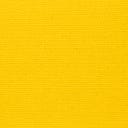Member-only story
University of Michigan — EECS 183
Elementary Programming Concepts — EECS 183
This course has five major parts to it:
Codelab — Usually around thirty coding exercises per week. Not difficult at all, good way to learn.
Zybooks — Guided readings to help understand code taught in the upcoming classes.
Lab — Two hour class once a week, with a small coding exercise due the following Monday.
Projects — Four projects, designed to be quite challenging for your skill level.
Written Exams — Two written exams, one part is multiple choice, the other is hand-writing code.
Course description: “Fundamental concepts and skills of programming in a high-level language. Flow of control: selection, iteration, subprograms. Data structures: strings, arrays, records, lists, tables. Algorithms using selection and iteration (decision making, finding maxima/minima, searching, sorting, simulation, etc.). Good program design, structure and style are emphasized. Testing and debugging.
This course (website: eecs183.org) is an introductory course to computer science and programming. Students will learn the basics of computing, as well as problem-solving and algorithmic thinking. Languages include C++ and Python.
Learning takes repetition, and approaching the topic from different angles. EECS 183 provides the repetition and the different approaches through multiple tools integrated into the course. We use:
- zyBooks is an online animated interactive textbook. ZyBooks have minimal text, and instead consist of question sets, animations, interactive tools, and auto-graded homework, so students can learn by doing.
- CodeLab is an online program for learning and practicing computer programming. It provides you with hundreds of very short exercises with immediate feedback.
- 183Study is an online tool where you can practice multiple choice exam questions from 7 years of past exams.
This course is an introductory course to computer science and programming. Students will learn the basics of computing, as well as problem-solving and algorithmic thinking. Languages include C++ and Python. Students will complete projects and create programs that are practical to life outside of class. At the semester’s end, students will work on a real-world final project of their choice in domains that can range from web…
